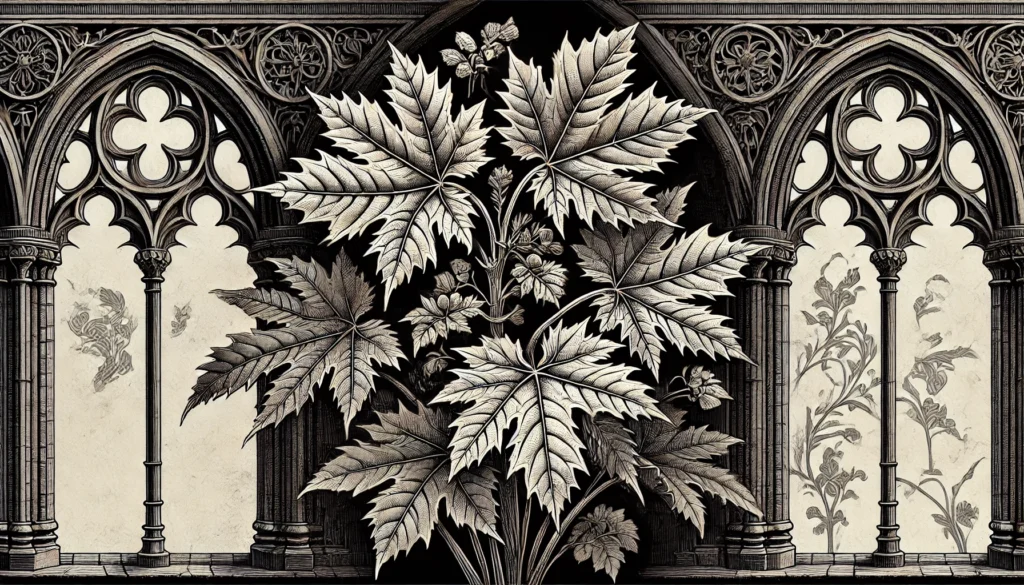

Home » Cat Plants » Can the Mapleleaf Begonia Plant be Harmful to Cats?

The Mapleleaf Begonia (Begonia maculata) is a popular houseplant known for its attractive spotted foliage. However, this plant can be toxic to cats if ingested. While cats are not necessarily allergic to Mapleleaf Begonia, the plant contains insoluble calcium oxalates which can cause irritation and poisoning symptoms in felines.
Mapleleaf Begonias are commonly found as indoor ornamental plants.
Ingestion may cause mild gastrointestinal upset, but is generally not life-threatening.
Ingestion can result in mild symptoms like vomiting, diarrhea, or drooling. Rarely fatal but may require veterinary care.
Eating these plants can lead to more pronounced symptoms like abdominal pain, lethargy, or difficulty breathing. Veterinary intervention may be necessary.
Ingesting even small amounts can cause severe symptoms like organ damage, seizures, or cardiac failure without rapid treatment.
All parts of these plants are extremely poisonous to cats and can quickly lead to death, even with immediate veterinary care.
** Please note: Please note that toxicity level can vary based on the amount ingested and the specific cat. It's always best to keep these plants completely inaccessible to cats and seek immediate veterinary care or call the poison hotline if you suspect your cat has ingested any part of a toxic plant.
If a cat ingests any part of a Mapleleaf Begonia, it may experience various symptoms due to the insoluble calcium oxalates present in the plant. These microscopic crystals can cause immediate irritation to the oral cavity, throat, and gastrointestinal tract. Common signs that your cat has been poisoned by Mapleleaf Begonia include:
If you suspect your cat has ingested Mapleleaf Begonia, it’s crucial to contact your veterinarian immediately. They will likely recommend the following steps:
For more information on what to do if your cat eats a toxic plant, visit the ASPCA Animal Poison Control Center.

A: Yes, Mapleleaf Begonia is toxic to cats. Ingestion can cause symptoms such as vomiting, salivation, and in severe cases, kidney failure.
A: If a cat consumes Mapleleaf Begonia, common symptoms include vomiting, excessive salivation, and general lethargy. More severe cases may lead to kidney issues, so immediate veterinary care is crucial.
A: Mapleleaf Begonia is moderately toxic, especially the underground parts. While it may not be as deadly as some plants like Lilies, it can still cause significant health problems in cats if ingested.
A: Safer plant alternatives include the Spider Plant and Areca Palm, which are non-toxic to cats. These options can add greenery to your home without posing a risk to your pets.
A: To protect your cat, keep Mapleleaf Begonia plants out of reach or avoid having them in your home. Using natural deterrents like citrus peels can also help keep your cat away from toxic plants.
A: If your cat ingests Mapleleaf Begonia, contact your veterinarian immediately. Early intervention can help manage symptoms and prevent severe complications such as kidney damage.
Mapleleaf Begonia, also known as Begonia maculata, is native to southeastern Brazil. It was first described by the German botanist Albrecht Wilhelm Roth in 1821. The plant gained popularity as an ornamental houseplant in the mid-20th century due to its striking foliage, which features dark green leaves with white polka dots.
Today, Mapleleaf Begonia is widely cultivated and hybridized, with numerous cultivars available in the horticultural trade. While it makes an attractive addition to indoor spaces, it’s important for cat owners to be aware of its toxicity and keep it out of reach of curious felines.
Please note: The information shared in this post is for informational purposes only and should not be considered as veterinary medical advice.
🐾 A hilarious or heart-melting cat video
🐾 Our latest paws-on review of a cool cat toy